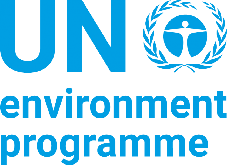Blue skies are a sign of a healthy environment and clean air. Unfortunately, in many countries, there is too little awareness of just how important blue skies are and how damaging, if not lethal, dirty air can be.
The World Health Organization estimates that seven million people die prematurely worldwide every year because of polluted air. And many more people become ill. The health costs and productivity losses alone total around five trillion US dollars per year. Some air pollutants are also bad for the climate.
Many countries, including developing countries, are now committed to tackling this challenge. China, where the situation has already improved, is a good example that many others should follow.
It is clear that air pollution does not stop at national borders. Pollutants spread over large distances. This is why it is a global task to ensure cleaner air, thus protecting health and productivity at the local level. This is why Germany supports the first UN International Day of Clean Air for blue skies.
Global commitment is effective. The Montreal Protocol, which put a stop to the depletion of the ozone layer, is proof of this. We need tenacity and patience to make the air cleaner, determined decision-makers and a committed society. The International Day of Clean Air for Blue Skies will raise awareness and contribute to the implementation of successful measures to improve air quality worldwide.
Svenja Schulze, German Federal Minister for the Environment, Nature Conservation and Nuclear Safety
Liebe Leserinnen und Leser,
ein blauer Himmel steht für eine intakte Umwelt, für saubere, gesunde Luft. Wie wichtig das ist, wie gesundheitsschädlich und sogar tödlich schlechte Luft sein kann, das ist leider in vielen Ländern zu wenig bekannt.
Die Weltgesundheitsorganisation schätzt, dass jedes Jahr sieben Millionen Menschen weltweit vorzeitig an verschmutzter Luft sterben. Und noch viel mehr Menschen werden krank. Allein die Gesundheitskosten und Produktivitätsausfälle summieren sich auf etwa fünf Billionen US-Dollar pro Jahr. Manche der Schadstoffe in der Luft sind außerdem schlecht für das Klima.
Viele Länder, auch Entwicklungsländer, gehen die Herausforderung mittlerweile engagiert an. China ist ein prominentes Beispiel. Dort hat sich die Situation bereits verbessert – ein positives Beispiel, dem viele weitere folgen sollten.
Für mich ist klar: Luftverschmutzung kennt keine Grenzen. Schadstoffe verbreiten sich über große Distanzen. Daher ist es eine globale Aufgabe, für bessere Luft zu sorgen und damit auf lokaler Ebene Gesundheit und Produktivität zu schützen. Deshalb unterstützt Deutschland den ersten „International Day of Clean Air for Blue Skies“ der Vereinten Nationen.
Globales Engagement wirkt. Ein Beleg dafür ist das Protokoll von Montreal, mit dem die Zerstörung der Ozonschicht gestoppt werden konnte. Es braucht langen Atem, um die Luft sauberer zu machen, entschlossene Entscheider*innen und eine engagierte Öffentlichkeit. Der „International Day of Clean Air for Blue Skies“ wird das Bewusstsein dafür stärken – und dazu beitragen, erfolgreiche Maßnahmen zur Verbesserung der Luftqualität durchzusetzen. Weltweit.
Ihre
Svenja Schulze, Bundesministerin für Umwelt, Naturschutz und nukleare Sicherheit
